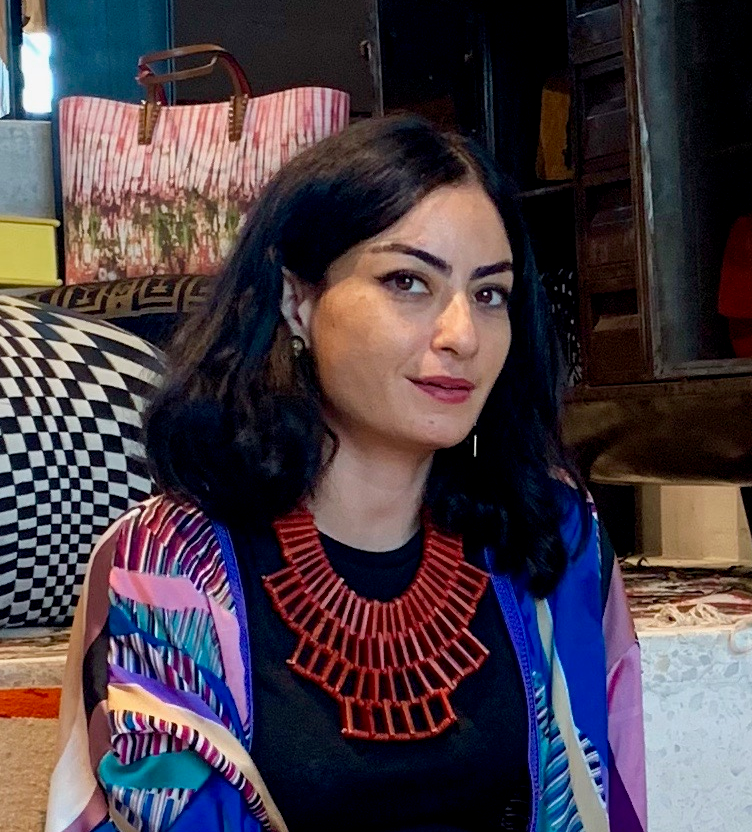Meriem Berrada

A total of 24 modern and contemporary art museum professionals residing in 19 different cities have been awarded support to attend the CIMAM 2019 Annual Conference The 21st Century Art Museum: Is Context Everything? that will be held in Sydney, Australia 15–17 November 2019 hosted jointly by the Museum of Contemporary Art Australia.
Launched in 2005, CIMAM’s Travel Grant Program is designed to foster cooperation and cultural exchange between contemporary art curators and museums directors in emerging and developing economies and their counterparts in other regions of the world.
Meriem Berrada's Conference Report
My first experience at CIMAM’s annual conference allowed me to witness great rhetoric as well as inspiring organization standards. Since I embody both management and curatorial missions, the relevant alternation of keynotes, panels, workshops, networking sessions, and visits has helped me to take tremendous benefits from the rich contents that the conference has offered.
On the one hand, I had the opportunity to experience management organization best practices that will have a direct outcome on a program I have recently developed for MACAAL, [Bootcamp] to be launched in January 2020 and that aims to reinforce the skills of contemporary art operators on the African continent. Given that we, in Africa, work in challenging conditions, ranging from lack of funds to a lack of educational and training offers, I wanted to build an initiative that empowers arts professionals so they can make a difference within their institution and well beyond, through intensive week-long training. To do so, I relied on both my art management degree and work experience and I would definitely use the conference’s alternation between speech, exchanging, meeting and visit times as well as organization tools as the digital application which allowed each participant to keep informed in real time, to connect and learn with and from each other easily, recording notes etc. and more broadly: showing creativity at every stage.
On the other hand, I was delighted to learn more deeply about the several raised topics, allowing me to challenge my curatorial perspective. The first day session title itself echoed directly to my everyday concern: challenging the narrative. As for my exhibitions and programming curatorial practice, the sessions were very useful since they made me put into perspective different realities. Indeed, during the first two keynotes, I felt like changing the words “Indigenous” or “Aboriginal” by “African” would qualify the same paradigm I work in, considering obviously our respective complexities, own territories and the specific connections. As a matter of fact, Morocco, as the majority of African countries have a colonial past even different realities. If the decolonization processes were, up to now, tackled through the economic, political and cultural prisms, it is by now shifting into the decolonization of the though.1
When Wanda Nanibush pointed out the indigenous philosophy of sharing as a foundation principle of her approach, it echoed an initiative we have implemented in MACAAL public program to remain faithful to the Morrocan core value: sharing. In fact, the couscous is shared every Friday in every Moroccan family, regardless of its social landscape. Thus, once a month we host the ‘Couscous and art’ for which we invite about 40 people, mixing different communities, artists, curators, construction workers to share a couscous at the Museum. Before doing so, we start by presenting the ongoing exhibitions in the Moroccan dialect, encouraging our guests to react to the artworks, fostering emotion feedbacks more than knowledge restoring and ending the visit in the Museums gardens, where we serve lunch. Hence, bringing the most popular dish in a place commonly identified as elitist is one of the examples of “thinking in situ”2 approach where the MACAAL is a barrier breaker. While the educational system, politics concern don’t meet with the general population needs, Museum becomes a sharing space, a rare place of social diversity. This idea resonates with Sally Tallant’s intervention in a very different context “there is a need to develop institutions that are open, inclusive and empathic”.
1 Achille Mbembe “ Working for the decolonization of the African spirit”, les Ateliers de la pensée, Dakar 2017
2 Sally Tallant Outside in : Inside out, 17 November 2019, CIMAM 2019 Annual Conference.